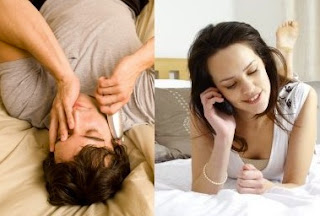Long-distance relationships. To some people they are the hardest relationships to be in. I have been in one for longer than I can remember with somebody that I love. It’s not always the most convenient relationship to be in, but it’s worth it. The one thing I can tell you about being in a long-distance relationship is that it takes a lot of work. You have to consciously put in effort everyday to stay with that person. If you have ever been in a long-distance relationship then you know that mediated communication such as Skype, or FaceTime is your best friend. What if I told you that mediated communication styles (Skype, texting, phone calls, Facebook, instant messaging, etc.) and the level of media used can make or break your relationship? A researcher that wanted to answer this question revealed that the different amounts of media a couple uses to communicate could dramatically increase or decrease the staying power for that relationship. Did you ever wish your partner would call more? How about comment more on your Facebook. What about the opposite? Have you ever felt suffocated with your partner and wish the constant calling and texting would decrease? These are the findings of this study. After interviewing 10 couples that use mediated communication the results were stunningly clear. Individuals in a relationship that use mediated communication such as Skype, texting, phone calls, Facebook, instant messaging, etc. at the same level were more “in tune” with each other than those that used it at different levels (one person used it more than the other). Using mediated forms of communication became part of the identity that formed their relationship. Texting or using Skype was just something the couple did; it became a norm within their relationship.
Couples also had to alter their use of mediated communication, some couples stated that they were using mediated communication too much or too little, with one couple even stating they needed to stop watching so much television and spend more time together. This makes me wonder, about the different reasons one would use mediated communication more than their partner. What if I was going through a stressful time at work and needed my partner to be there for me? Causing me to text more than I normally would. Would this decrease our satisfaction or would we have to temporarily adjust our mediated use. Mediated communication is becoming more and more popular and I can only imagine it won’t be long before we all have to increase our usage in some way.




